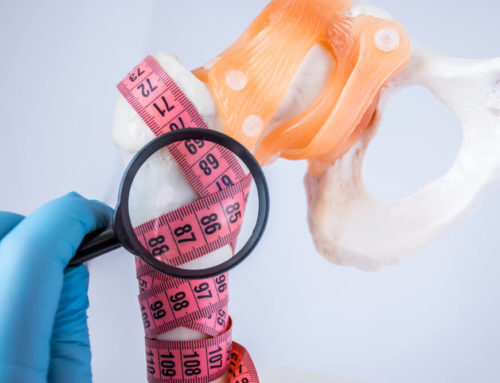Birth control is a highly personal choice for every woman. There are many reasons why people opt for birth control, with the chief reasons being to prevent pregnancy and manage hormonal issues. Among the birth control methods that are available for use, the most popular are IUDs, condoms, pills, the patch, and implants. Choosing one from this list is not easy. For instance, if you want to pick an IUD, you need to know things like, ‘when is an IUD effective?‘ However, nowadays, it seems like IUDs are gaining popularity. Let’s take a look at some of the IUD pros and cons.
What is an IUD?
An IUD, short for intrauterine device, is a long-acting reversible method of contraception. This small, t-shaped device is inserted into the uterus to block pregnancy. There are several kinds of IUDs, and depending on the type, they can last for about three to ten years. Research shows that this device is more effective at preventing pregnancy than most methods of contraception.
Apart from their effectiveness, IUDs are also preferred because of their convenience. For instance, instead of having to take a pill every day, the device will be internal, so you don’t need to remember or even think about it. Once implanted, it will start doing its job, and you won’t even feel it. Research also suggests that IUDs can help with menstrual symptoms, like bleeding and cramping.
Before you get an IUD, you must visit your doctor and discuss your concerns with them. They will be able to answer all your questions. For instance, you might want to know things like when is an IUD effective? They will also be able to explain the IUD pros and cons to you. Let’s take a closer look at the most common IUDs pros and cons.
Advantages of IUDs
 There are many IUD pros and cons. However, the pros seem to outweigh the cons, hence their popularity. Overall, these devices are quite effective, and convenient and that is the reason why they have become so popular. Here are the other benefits associated with IUDs.
There are many IUD pros and cons. However, the pros seem to outweigh the cons, hence their popularity. Overall, these devices are quite effective, and convenient and that is the reason why they have become so popular. Here are the other benefits associated with IUDs.
IUDs are Highly Effective
IUDs are among some of the most effective methods of long-term protection against pregnancy. Statistics show that they are 99% effective. In fact, an IUD is comparable to sterilization when it comes to preventing pregnancy. After all, there is no effort required from the user, so there is no way you can mess it up. It’s unlike the pill that you can forget or condoms that can tear. You can think of the IUD as a “set-it-and-forget-it” birth control method. If you want to know more about things like when is an IUD effective and the level of effectiveness, you can talk to your doctor and they will explain in detail.
IUDs are Highly Convenient.
Once the IUD has been successfully inserted, there is no need to even think about it. The device works until it expires or gets taken out for some reason. This means you don’t have to take any trips to the pharmacy or to the doctor. Also, unlike other methods, you don’t need to remember to use it before or after sex. To add to the convenience, IUDs offer protection for a considerably long time. Most of these devices will prevent pregnancy for about three to 12 years.
Once You Decide to Get Pregnant, You Can Take It Out
One other advantage of IUDs is that they are easily reversible. The moment you decide to get pregnant, all you need to do is visit the doctor and have it taken out. Another advantage is that they don’t affect your fertility in any way, so there is no risk that you will find it hard to get pregnant when you need to. In fact, you can get pregnant as soon as the device is taken out.
IUDs Can Help With Period Discomfort
There are certain kinds of IUDs that can prevent cramps and make your period more manageable. These devices are hormonal in nature, and some users will stop getting periods altogether when they get such an IUD. Hormonal IUDs can help with symptoms like severe cramps, heavy periods, and anemia.
You Can Opt for Non-Hormonal IUDs
Not all IUDs have hormones. There are some women who prefer non-hormonal IUDs because of medical issues. Fortunately, there are certain kinds of IUDs, like the copper IUD, that are highly effective at preventing pregnancy while at the same time being entirely hormone-free.
Copper IUDs Can Be Used for Emergency Contraception
Apart from being used as long-term contraception, you can also use an IUD as emergency contraception. For instance, some women use Paragard IUDs as a form of emergency contraception. If you have unprotected sex and get a Paragard IUD within 120 hours, your chances of not getting pregnant are more than 99%. The bonus is that once the IUD is in place, you won’t get pregnant for up to 12 years, so there will be no need for emergency contraception.
Disadvantages of IUDs
 As much as IUDs are effective, they also come with some risks and disadvantages. Here are some IUD cons.
As much as IUDs are effective, they also come with some risks and disadvantages. Here are some IUD cons.
Insertion Can Be Painful
The insertion of an IUD can be a bit painful, and this is one of the most prevalent IUD cons. As such, most women are advised to take pain medications beforehand. One popular medication used by women before getting an IUD is ibuprofen. While it doesn’t necessarily help with pain during insertion, it has been shown to be quite effective at reducing the cramps afterward.
Bleeding and Cramping After Insertion
Apart from the pain and discomfort that you might feel during insertion, another of the IUD cons is that an IUD can also cause you to bleed and experience cramps the first few months after insertion. To keep these symptoms under control, you can keep taking some ibuprofen. If the pain persists even after taking ibuprofen, you might need to see a doctor as soon as possible. If the bleeding and cramping do not stop within three months of getting the IUD, your doctor might put you on birth control medications to help regulate your cycle.
What do you think about IUDs? Have you gotten one before? These devices are highly effective, but they do not come without their own shortcomings. Fortunately, your doctor will be in a position to determine whether an IUD is ideal for you and also help with any discomfort, pain, or complications that may arise. If you are interested in learning more about IUDs or getting one, don’t hesitate to contact us and schedule a consultation.










